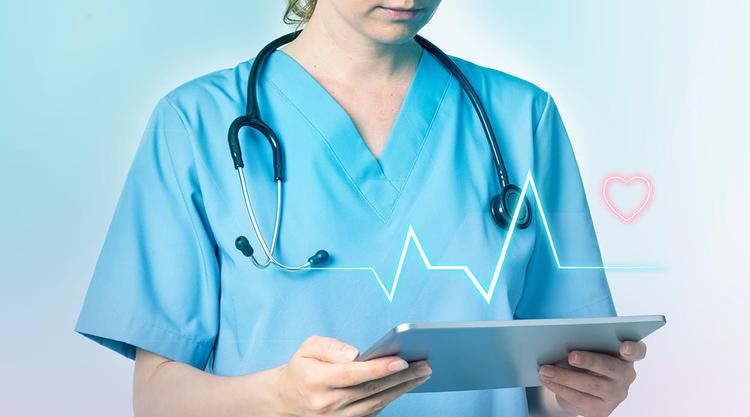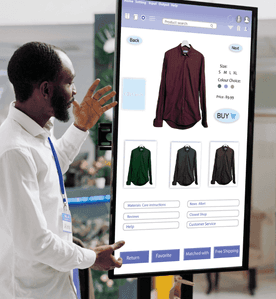Top 10 Artificial Intelligence Applications in Modern Healthcare & Medicare Field
Sector: Digital Product, Future Tech
Author: Nisarg Mehta
Date Published: 11/30/2018

Contents
The large plethora of intelligent technologies have penetrated into various industries in the age of information. Healthcare being no exception has witnessed the rapid integration of artificial intelligence (AI) over the last few years.
A report released in 2016 by CB Insights reveals that as much as 86% of life science companies, healthcare providers, and technology vendors are opting for AI technologies. In fact, all the industries that are allied to healthcare, including insurance companies, have been evolving, thanks to AI and automation. The report further reveals that these organizations, by 2020, will be spending $54 million on an average, on AI projects.
With the healthcare and hospitalization industry bracing up for several changes, it is time to have a look into the AI applications that are already in use. From cancer and radiology to risk assessment of chronic diseases, artificial intelligence has leveraged the industry to a significant extent.
1. Performing routine tasks
As the industry strides ahead, the volume of data continues to increase at a staggering pace. While carrying out CT scans, X-rays, analyzing tests, and carrying out other mundane tasks like data entry, AI can make the process simplified.
Particularly, in radiology and cardiology, the amount of data can be massive. AI integrated robots are being entrusted with these tasks to pacify the process. In the future, radiologists and cardiologists will be looking into areas only where human supervision is necessary.
2. Managing data and medical records
In the healthcare industry, compiling and evaluating information like past history and medical records generally constitute the first step. Integrating digital automation and artificial intelligence can simplify data management to a great extent.
Presently, robots are used to collect, re-format, store and trace data in order to make access to information faster and more consistent. Reputed IoT solution providers have been closely collaborating with the hospitals and healthcare providers in developing robust AI-integrated tools.
3. Treatment design
AI systems have been developed and deployed to analyze information so that the medical practitioners can select the accurate, individually customized path of treatment. The information required for processing may include the patient’s medical files. Coupled with clinical expertise and external research, the AI-integrated apps help in designing the treatment course.
4. Digital consultation
In the UK, apps like Babylon use AI to provide medical consultation to patients, based on common knowledge in medicine and personal medical history. The users simply need to report their symptoms, while the app uses speech recognition to compare the same against a database of ailments. Then the app recommends an action, based on the medical history of the patient.
5. Medication management
The AiCure app, developed by the National Institutes of Health, monitors how a patient adheres to the medication guidelines. Artificial intelligence is integrated into the webcam of a smartphone, confirming that the patients take the prescribed medicines at the right time. This enables them to manage the medical conditions better, as most of the users have serious health issues, or tend to go against the advice of physicians, participating in clinical trials.
6. Virtual nurses
A digital nurse, a Molly, has been developed by the start-up called Sense.ly, which can monitor the conditions of patients and provide treatments as follow-ups, between the doctor’s visits. Here, the developers have used machine learning to support patients who suffer from chronic illnesses.
In 2016, another app for Amazon Alexa had been developed by the Boston Children’s Hospital, which provides parents with advice and information to take care of the health of their children who were ill. The app has the ability to answer questions regarding medical conditions, detect symptoms and recommend whether a doctor’s visit is required.
7. Precision medicine
Genomics and genetics seek mutations and connections to disease from DNA information. AI has made it possible to spot vascular diseases and cancer early so that the doctors can take timely action. Analyzing genetics can predict the health issues that people may face.
8. Monitoring health
Presently, a large number of health trackers like Apple, FitBit, and Garmin are used to monitor the activity levels and heart rate of the users. These are AI-integrated smart devices, that send alerts to carry out the necessary activities and share them with the physicians.
9. Creating drugs
The traditional process of using clinical trials for developing pharmaceuticals can take decades, and incur huge expenses. AI has already made this process faster and cheaper. During the recent outbreak of the Ebola virus, an AI-powered program was used for scanning the existing medicines, so that the researchers could redesign them to combat the disease. The program helped in finding two programs, that would reduce the infectivity of Ebola for a day, while this type of analysis takes up to several months or years. This can eventually save thousands of lives.
10. Analysing the healthcare system
Across the world, efforts are being made to simplify the analysis of healthcare systems using artificial intelligence. Presently, 97% of the invoices generated in the healthcare industry in the Netherlands are digital. A Dutch company examines data using AI to find the mistakes in treatments and inefficiencies in workflows. As a result, unnecessary hospitalizations of patients can be avoided.
Unifying the mind and machine
1. Automation Increase Accuracy of Treatments
As innovations continue to push forward, digital workforces and automation are offering tremendous benefits to the healthcare industry. Besides, specialist solution providers are coming up to save time and cost in the treatment processes, while increasing the accuracy of treatments.
2. Time to Develop AI-Integrated Apps
As the payment structures keep evolving, patients keep on demanding more from the healthcare providers. With the volume of information generated in the industry rising, it is the right time for healthcare organizations to embrace AI-integrated apps. Established mobile app developers like Techtic have been actively collaborating with a healthcare organizations in developing customized apps, powered by AI.
3. Increases Accuracy of Healthcare Firm
Partnering with the developers can help healthcare firms gain a competitive advantage over the traditional process of evaluating the information. It will also enhance the accuracy in decision making, as learning algorithms are more precise in interacting with data. This will result in an unprecedented insight into treatment variability, care processes, diagnostics, and patient outcomes.



